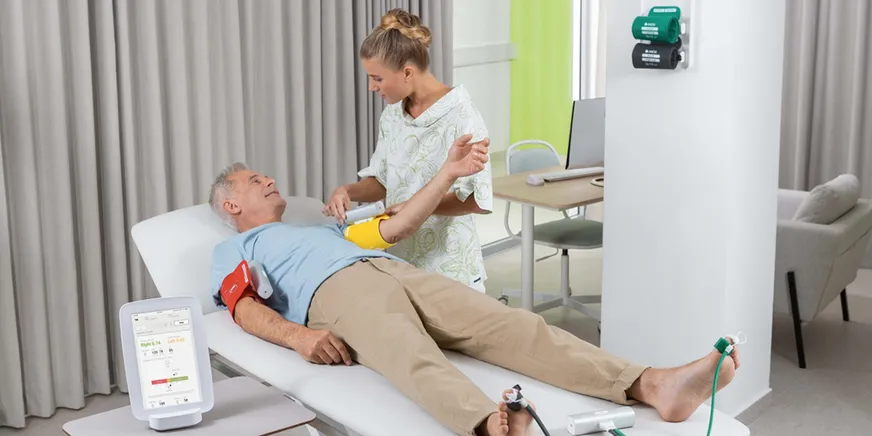For workers in California who’ve experienced traumatic brain injuries (TBI), the physical effects are quite well-known. However, there is also a range of emotional and behavioral effects that can greatly impact a person’s life both at work and at home. Understanding these issues is crucial to ensuring that you and your family can access the help you need to make the best possible recovery. Brainline.com highlights common mental symptoms that can occur after a TBI.
Swirling Emotions and Mood Swings
Mood swings are defined as an ever-changing sequence of emotions. A person may be happy one minute, sad the next, and enraged a few minutes after that. It can be difficult for people to control their changing moods, especially when a brain injury is an issue. In many cases, these behaviors are hardest on the families of those afflicted. While there may be a definable reason for a person’s behavior, the underlying brain injury it can still be hard to handle on a day-to-day basis.
What makes mood swings after a TBI particularly challenging is that they often stem from injury to the frontal lobe of the brain, which is responsible for regulating emotions and impulse control. This biological cause can leave people feeling powerless, and loved ones may struggle to understand that the changes are not intentional. Over time, these symptoms may improve as the brain heals; however, for some workers, the instability can persist for months or even years.
Seeking the assistance of a behavioral therapist can be beneficial for learning effective coping mechanisms. Cognitive-behavioral therapy (CBT) is often used to help workers identify triggers and develop strategies to manage frustration or sadness. Support groups are also helpful, as members suffering from the same condition can exchange information on coping mechanisms and offer moral support.
Other Common Effects of TBI on Behavior
Along with mood swings, people with TBI may exhibit other upsetting effects. Physical and verbal outbursts are common, and these incidents may arise unexpectedly. Individuals may also develop negative personality traits such as an egocentric nature, intolerance, or apathy towards the thoughts and feelings of others. Risk-aversion can also be affected. A person might engage in risky behavior even if they were previously cautious and law-abiding. Mental health issues such as depression or anxiety frequently present after a brain injury, and these can make recovery more complex without proper medical or psychological support.
Some people also experience what doctors call executive dysfunction, which refers to difficulty with planning, organizing, or following through on tasks. Others may face post-concussion syndrome or post-traumatic stress disorder (PTSD), particularly if the injury was caused by a traumatic workplace accident such as a fall from scaffolding or a vehicle crash on the job. These secondary conditions can amplify emotional instability and increase the need for ongoing treatment.
Impact on Work and Family Life
For California workers, these emotional and behavioral changes can have direct consequences in the workplace. A person may struggle with concentration, decision-making, or social interactions, which can affect job performance. Employers may notice increased absenteeism, difficulty meeting safety requirements, or challenges with teamwork. In industries such as construction, manufacturing, or transportation, these symptoms can also pose safety risks to the injured worker and their coworkers.
Families often carry the emotional burden, coping with sudden personality changes, mood instability, or aggressive outbursts at home. Spouses may feel isolated, children may become confused by their parents’ changing behavior, and the family unit may experience strain as roles shift. These challenges not only create stress but may also qualify an injured worker for additional benefits under California workers’ compensation laws. Emotional and psychological symptoms are often compensable if linked to the original brain injury.
Recovery Timelines and Prognosis
The length of time emotional and behavioral symptoms last after a TBI depends on the severity of the injury and the individual’s access to medical care. Mild TBIs, such as concussions, may cause temporary changes that improve within weeks or months. Moderate to severe TBIs, however, can result in lasting personality changes, chronic depression, or anxiety disorders that persist for years.
Some workers notice new symptoms weeks after the original injury, while others may not recognize emotional instability until they attempt to return to work or social life. Early intervention is crucial, as treatment and therapy are most effective when symptoms are addressed quickly. Long-term rehabilitation, including therapy and workplace accommodations, may be necessary for workers with permanent impairments.
Treatment and Support Options
Treatment for emotional and behavioral effects of TBI usually involves a combination of approaches. Cognitive-behavioral therapy can provide tools to manage mood swings, anger, or impulsivity. Doctors may prescribe antidepressants, anti-anxiety medication, or mood stabilizers to help regulate chemical imbalances in the brain. Neuropsychological evaluations help measure changes in memory, attention, and problem-solving, while rehabilitation programs, including occupational and speech therapy, can assist with regaining independence.
Family counseling is often an overlooked but essential part of recovery, as loved ones need guidance on how to support the injured person while also protecting their own emotional health. Employers may also need to provide workplace accommodations, such as flexible schedules, lighter duties, or additional training, to ensure the worker can continue employment while managing symptoms.
Legal Rights and Workers’ Compensation in California
California law recognizes that workplace injuries including TBIs can lead to psychological and emotional conditions that disrupt daily living. If you developed depression, anxiety, or other behavioral issues following a traumatic brain injury sustained at work, you may be entitled to workers’ compensation benefits.
This can include coverage for medical treatment, therapy, and medications, as well as temporary or permanent disability benefits if you are unable to work. Workers may also qualify for accommodations under the California Labor Code and the Americans with Disabilities Act (ADA). In some cases, impairment ratings from medical professionals play a crucial role in determining the extent of benefits. Documenting symptoms, securing medical evidence, and obtaining professional evaluations are critical steps in building a strong case for compensation.
FAQs on TBI, Emotions, and Legal Rights
What emotional symptoms are most common after a traumatic brain injury?
Mood swings, irritability, impulsive behavior, depression, anxiety, and executive dysfunction are among the most frequent symptoms.
Can the emotional effects of TBI qualify for workers’ compensation in California?
Yes. If your brain injury occurred in a work-related incident and you experience psychological or behavioral changes as a result, you may qualify for medical treatment and disability benefits under California law.
Why does a brain injury cause emotional changes?
Damage to areas of the brain such as the frontal lobe, along with changes in neurotransmitters and brain chemistry, can disrupt normal emotional regulation. This makes it harder to manage moods and impulses.
How long do emotional changes last after a TBI?
It varies widely. Some individuals recover within weeks, while others may experience long-term or permanent changes, depending on the severity of the injury, the effectiveness of rehabilitation efforts, and the availability of support.
What should families do if they notice sudden behavioral changes?
Families should seek immediate medical evaluation and consider therapy for both the injured worker and their loved ones. Support groups and counseling can help reduce stress and improve coping strategies.
How do I prove emotional effects in a workers’ compensation claim?
Medical records, neuropsychological evaluations, and testimony from healthcare professionals serve as evidence. Legal guidance from experienced attorneys ensures these records are properly presented.
Can I return to work if I still have emotional or behavioral issues?
Yes, but accommodations may be necessary. California law allows workers to request modifications, such as flexible schedules, reduced-stress tasks, or job coaching, to support their recovery.
Get Help from Experienced TBI Attorneys in California
If you or a loved one has suffered a traumatic brain injury at work and is struggling with emotional or behavioral symptoms, professional guidance is essential. At Hussain & Gutierrez, we understand both the medical and legal challenges associated with TBIs. Our attorneys help California workers secure the benefits they need for medical care, therapy, and long-term support.
Visit today to schedule a consultation and learn how we can help protect your rights and support your recovery.



